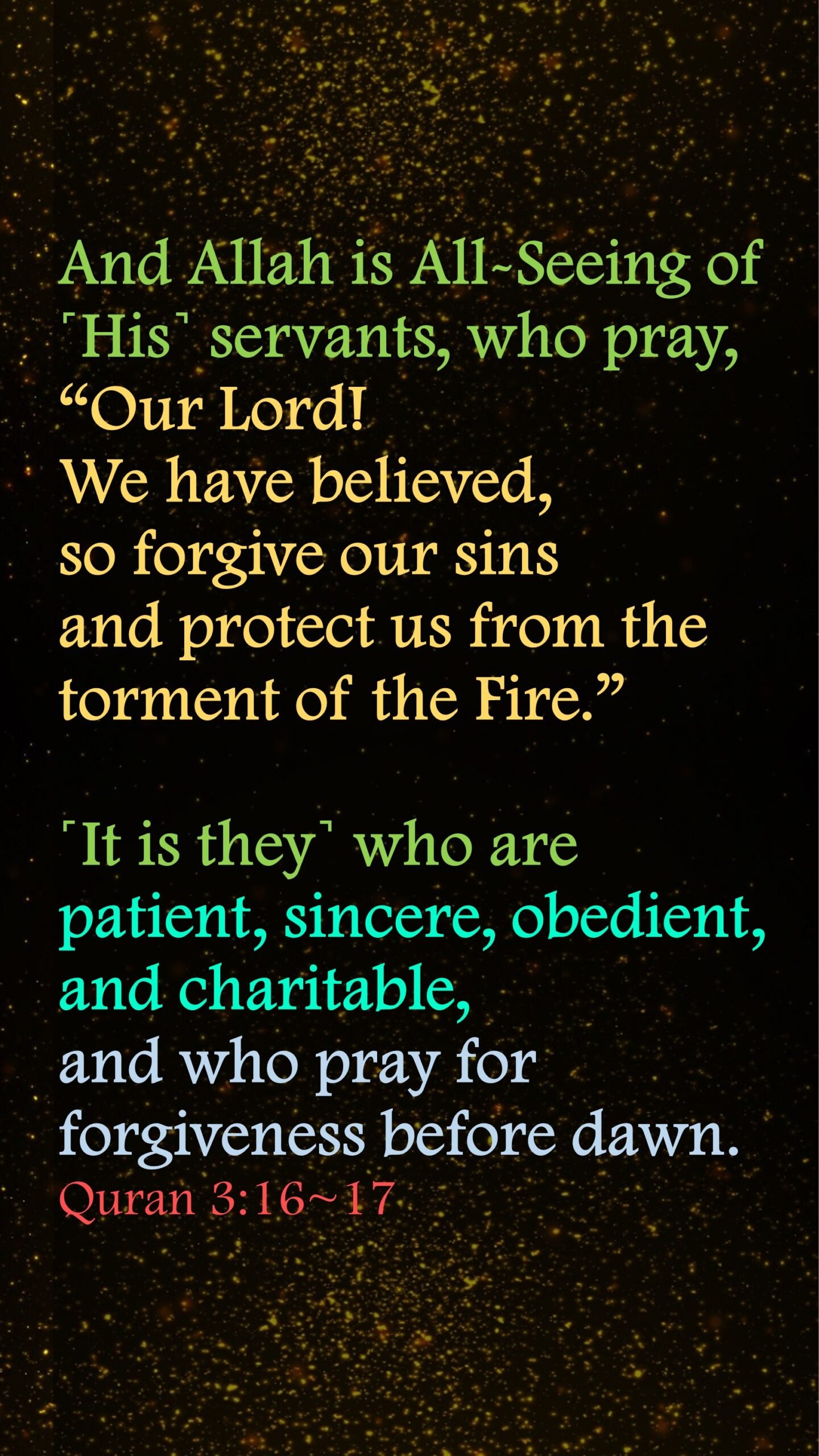Skip to Content
Tag Archives: obedient
- Home -
- Posts tagged "obedient"
26
Sep, 2023
Hadees, Islam
Allah, clean, daily, dua, fearful, grateful, guide, heart, humble, inspirations, islam, islamic, Muhammad, obedient, PBUH, repent, SAWW, supplication, tongue, true, truth
30
Oct, 2022
Islam, Quran
All-Seeing, Allah, ayat, before, believe, chapter 3, charitable, daily, dawn, fire, forgive, forgiveness, inspirations, islam, islamic, Lord, obedient, patient, pray, prayer, protect, quran, servants, sins, Surah, Tahajjud, torment, verse 16, verse 17
10
Jul, 2022
Islam, Quran
all, All-Seeing, Allah, ayat, before, believe, better, chapter 3, charitable, daily, dawn, fire, forever, forgive, forgiveness, Gardens, Heaven, hell, inspirations, islam, islamic, Lord, mindful, obedient, patient, PBUH, pleasure, pray, prayer, Prophet, protect, quran, rivers, SAWW, servants, sincere, spouses, Surah, Tahajjud, verses 15 to 17
9
Jun, 2022
Islam, Quran
1-14, 79, above, affair, an-Nazi`at, angel, Angels, believers, blast, bones, daily, day, decay, denier, disbelievers, downcast, eyes, force, fulfill, gentle, glide, ground, Heaven, horror, inspirations, islam, islamic, judgement, loss, mocking, obedient, order, pull, quake, quran, restore, Second, souls, space, Surah, swift, tremble, trumpet




